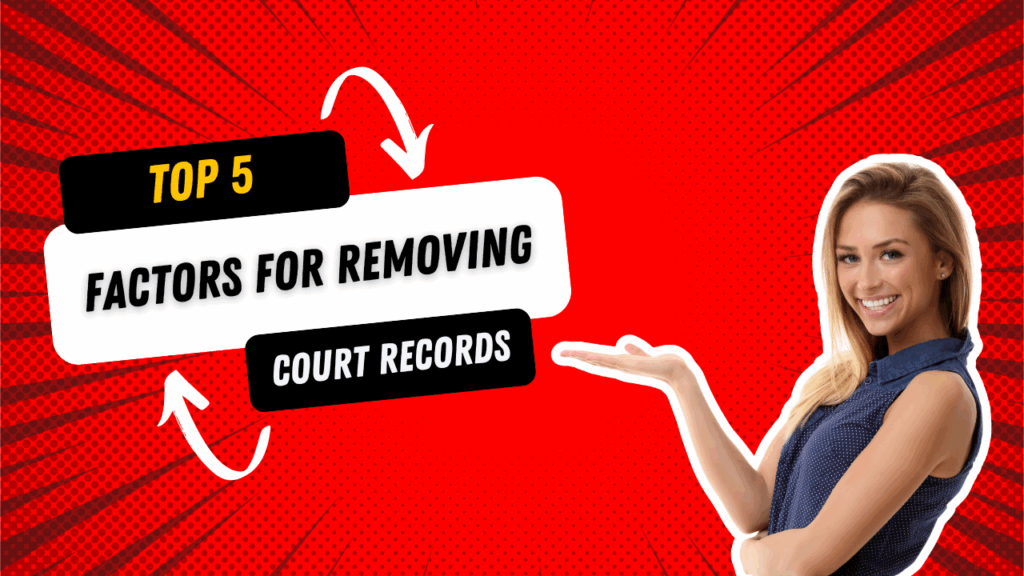Not every court record can be wiped clean. Whether you’re trying to protect your personal reputation or clean up your search results, the first step is understanding what makes a court record eligible for removal.
Here are the top five factors that determine if a court record can be removed—and what you can do if it qualifies.
Dig Deeper: How to Remove Court Records from Google Search
1. The Outcome of the Case
The most important factor is how the case ended. If you were never convicted, or the case was dismissed, sealed, or resolved in your favor, removal is much more likely.
More likely to be removed:
- Charges dismissed
- Not guilty verdict
- Completed diversion or rehabilitation
Harder to remove:
- Guilty plea or conviction
- Open or ongoing cases
2. The Type of Offense
Some offenses are easier to expunge or seal than others. Minor offenses, non-violent crimes, and first-time incidents often qualify for removal. Serious or repeat offenses typically don’t.
Easier to remove:
- Misdemeanors
- Juvenile offenses
- First-time charges
Harder to remove:
- Violent crimes
- Sexual offenses
- Repeat or felony convictions
Each state has different eligibility lists for expungement or sealing.
3. Time Since the Case Closed
Most states require a waiting period before you can file for expungement or record sealing. If the case was resolved recently, you may need to wait a few years before becoming eligible.
Common waiting periods:
- 1 to 5 years for misdemeanors
- 5 to 10 years for felonies
Some states offer automatic sealing after a set period for certain types of offenses.
4. State Laws and Jurisdiction
Court record removal laws vary widely by state. What’s removable in one state may not be in another. Some states have strict eligibility rules; others are more flexible.
Check your state’s expungement and sealing laws, or consult a local attorney or reputation service to understand your options.
5. Evidence or Documentation
Even if your case qualifies, you’ll need to show proper documentation. Courts, websites, and Google all want proof that the record is outdated, incorrect, sealed, or expunged.
Helpful documentation includes:
- Expungement or sealing orders
- Dismissal records
- Court judgments
- Government-issued corrections
Without official proof, removal requests are more likely to be denied.
Final Thoughts
Not every court record can be removed—but many can, under the right conditions. If your case was dismissed, non-violent, or happened years ago, there’s a strong chance you qualify. State laws, case outcome, and documentation all play a role in what’s possible.
Need help figuring it out? Top Shelf Reputation specializes in court record removal and suppression. Contact us today for a private consultation and find out if your record can be cleared from public view.

